<< Previous | Displaying results 551-560 of 6809 for "" | Next >>
Jacob, known as "Jaap," and his three sisters grew up in Amsterdam in a religious, Zionist Jewish family that could trace its roots in the Netherlands back 200 years. Jaap attended a Jewish elementary school until the age of 12, and then enrolled in a commercial high school, where he studied accounting. After graduating, he took a position in the Amsterdam Carlton Hotel. He worked there in 1931 and 1932. 1933-39: Jaap's life had been centered mostly in the Jewish community, so the Carlton Hotel was a new,…
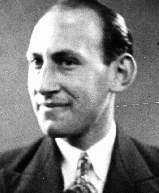
Maria was one of four children born to poor Roma ("Gypsy") parents in the capital of Moldavia in eastern Romania. The family lived in a mixed neighborhood that included Romanians and Roma. Maria grew up in a house with a yard where the family kept a pig and some chickens. Her father made a living by singing and by working at some of the many wineries that dotted the Moldavian countryside. 1933-39: Maria's parents couldn't afford to send her to school. To help make ends meet, Maria, her sister and older…
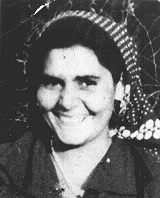
Stefan was born to Romani ("Gypsy") parents in the capital of Moldavia in eastern Romania. The family lived in a mixed neighborhood of Roma and Romanians. Stefan's father made a living playing guitar in local restaurants. As a child, Stefan learned to play the violin and he often performed with his father. 1933-39: When Stefan was a teenager and old enough to branch out on his own, he left his father and teamed up with another young man to perform in restaurants. They performed all over Moldavia. The…
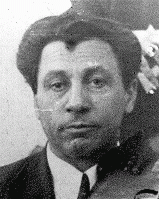
Hansi, as he was called by family and friends, was the third of six children born to Roma ("Gypsy") parents who were Roman Catholic. The family wagon traveled with a caravan that spent winters in Vienna, Austria's capital, and summers in the Austrian countryside. The Stojkas belonged to a tribe called the Lowara Roma, who made their living as itinerant horse traders. 1933-39: Hansi grew up used to freedom, travel and hard work. He was 9 years old and their wagon was parked for the winter in a Vienna…
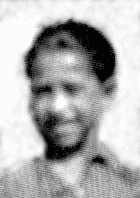
Ceija was the fifth of six children born to Roma ("Gypsy") parents who were Roman Catholic. The Stojka's family wagon traveled with a caravan that spent winters in the Austrian capital of Vienna and summers in the Austrian countryside. The Stojkas belonged to a tribe called the Lowara Roma, who made their living as itinerant horse traders. 1933-39: Ceija grew up used to freedom, travel and hard work. Once, her father made her a skirt out of some material from a broken sunshade. She was 5 years old and…
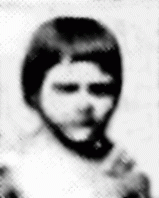
Marie belonged to a tribe of Roma ("Gypsies") called the Lowara Roma who traveled in a caravan and made a living as itinerant horse traders. The caravan spent winters in Vienna, Austria's capital, and summers in the Austrian countryside. When Marie was 18, she married Karl Stojka from the same tribe. Marie's family was Roman Catholic and her ancestors had lived in Austria for more than 200 years. 1933-39: By 1936 Marie had six children. They lived with a caravan, and were used to freedom, travel and hard…
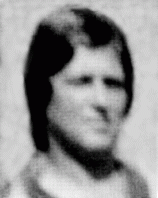
Friedrich-Paul was born in the old trading city of Lübeck in northern Germany. He was 11 when his father was killed in World War I. After his mother died, he and his sister Ina were raised by two elderly aunts. After graduating from school, Friedrich-Paul trained to be a merchant. 1933-39: In January 1937 the SS arrested 230 men in Lübeck under the Nazi-revised criminal code's Paragraph 175, which banned sexual relations between men. Friedrich-Paul was imprisoned for 10 months. In 1938 he was…
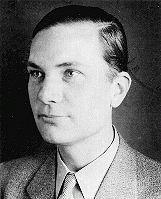
Born Martin Hoyer, Robert took Robert T. Odeman as his stage name when he began a professional career as an actor and musician. A classical pianist, Robert gave concerts throughout Europe, but a hand injury tragically ended his concert career. 1933-39: In 1935 Robert opened a cabaret in Hamburg. One year later the Nazis shut it down, charging that it was politically subversive. Robert then moved to Berlin where he developed a close relationship with a male friend who was pressured to denounce Robert to…
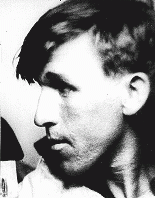
As a young boy growing up in Berlin, Harry developed a love for the theater. At 15 he began acting in minor roles at a theater at the Nollendorfplatz. He was also apprenticed to a hairdresser but disliked the work. He spent most of his time with other actors, both at the theater and in nightclubs where gay men gathered. 1933-39: When the Nazis came to power, they closed the gay bars. Some gay men, especially those who were Jewish, were killed by Nazi sympathizers; Harry's friend "Susi," a drag queen, was…
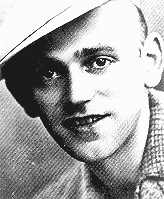
Karl was born in the north German port of Hamburg. His father was American, and his mother was German. Soon after Karl was born, his father returned to the United States and a little later, his parents were divorced. Karl left school when he was 14 and worked as a shop apprentice. 1933-39: In 1935 an informer told the police about Karl's secret meetings with a 15-year-old youth, and he was arrested under the criminal code's paragraph 175, which defined homosexuality as an "unnatural" act. Though this law…
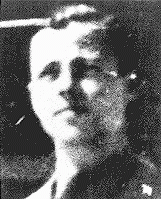
We would like to thank Crown Family Philanthropies, Abe and Ida Cooper Foundation, the Claims Conference, EVZ, and BMF for supporting the ongoing work to create content and resources for the Holocaust Encyclopedia. View the list of donor acknowledgement.